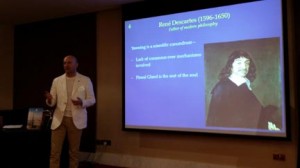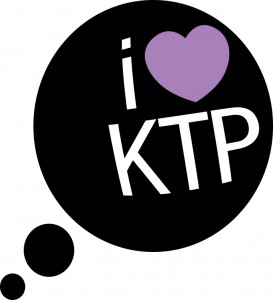Writing a blog post about our experience at the ABS (Association of Business Schools’) annual conference on Learning, Teaching and Student Experience, 27-29 April 2015, has proven to be a great way to fill in the time waiting for a plane back from York, UK!
Louise (Preget), Deborah (Taylor) and I (Milena Bobeva) had been to York to present the work from the first stage of the Fusion project on Reverse Mentoring (RvM) in Higher Education. This student:staff co-creation/co-production project examines RvM, a strategy where younger, less experienced employees share their knowledge and expertise with a more senior person. Our team has studied industry practices as viewed and experienced by our placement and post-placement students.
The conference was a brilliant opportunity for academics within UK Business Schools to share and showcase best practice in a number of key streams including internationalisation, blended learning, the changing student and employability. Bournemouth University had a strong lobby there with five academics and three publications, including two by Dr Sukanya Ayatakshi, who presented some assessment and engagement practices on the fully online International Business and Management undergraduate programme.
There was unanimous agreement amongst the BU team that the most interesting session at the conference was the talk on ‘Threshold concepts and troublesome knowledge’ delivered by Prof. Ray Land from Durham University. It stressed the importance of challenging our habitual practices as both learners and educators and made us recognise RvM as a threshold concept. Further detail of this seminal work is available here and on this website.
For those interested in finding out more about reverse mentoring and the findings of the Fusion project, we will be running a session at the Festival of Learning: 3-5pm on the 14th July 2015 in PG142-144.













 We have been commissioned by the Centre of Workforce Intelligence funded by the Department of Health, to model the future demand of the health and social care workforce over the next 30 years. Professor Keith Brown and Emily Rosenorn-Lanng were invited to participate in the Elicitation workshop facilitated by DoH with a host of Social Care Workforce leaders and specialists to look at the current and future impacts on the workforce and what this may be more care planning in the future. Emily in particular sourced and analysed the national data for the level of demand and availability of the current workforce.
We have been commissioned by the Centre of Workforce Intelligence funded by the Department of Health, to model the future demand of the health and social care workforce over the next 30 years. Professor Keith Brown and Emily Rosenorn-Lanng were invited to participate in the Elicitation workshop facilitated by DoH with a host of Social Care Workforce leaders and specialists to look at the current and future impacts on the workforce and what this may be more care planning in the future. Emily in particular sourced and analysed the national data for the level of demand and availability of the current workforce. We were commissioned by the London Borough of Enfield to evaluate their Making Safeguarding Personal Strategy in order for them to apply for Gold Standard status from the Local Government Association. Dr Gary Barrett and Sarah Wincewicz were invited to spend time with the teams at Enfield to explore safeguarding practice. As part of this work we are collaborating with Enfield and other local authorities to create a Safeguarding App, which will allow practitioners to access the most current safeguarding information on a mobile device.
We were commissioned by the London Borough of Enfield to evaluate their Making Safeguarding Personal Strategy in order for them to apply for Gold Standard status from the Local Government Association. Dr Gary Barrett and Sarah Wincewicz were invited to spend time with the teams at Enfield to explore safeguarding practice. As part of this work we are collaborating with Enfield and other local authorities to create a Safeguarding App, which will allow practitioners to access the most current safeguarding information on a mobile device.











 Dr. Ashraf cited on ‘Modest Fashion’ in The Guardian
Dr. Ashraf cited on ‘Modest Fashion’ in The Guardian NIHR-funded research launches website
NIHR-funded research launches website Academics write for newspaper in Nepal
Academics write for newspaper in Nepal New paper published on disability in women & girls
New paper published on disability in women & girls MSCA Postdoctoral Fellowships 2025 Call
MSCA Postdoctoral Fellowships 2025 Call ERC Advanced Grant 2025 Webinar
ERC Advanced Grant 2025 Webinar Horizon Europe Work Programme 2025 Published
Horizon Europe Work Programme 2025 Published Horizon Europe 2025 Work Programme pre-Published
Horizon Europe 2025 Work Programme pre-Published Update on UKRO services
Update on UKRO services European research project exploring use of ‘virtual twins’ to better manage metabolic associated fatty liver disease
European research project exploring use of ‘virtual twins’ to better manage metabolic associated fatty liver disease